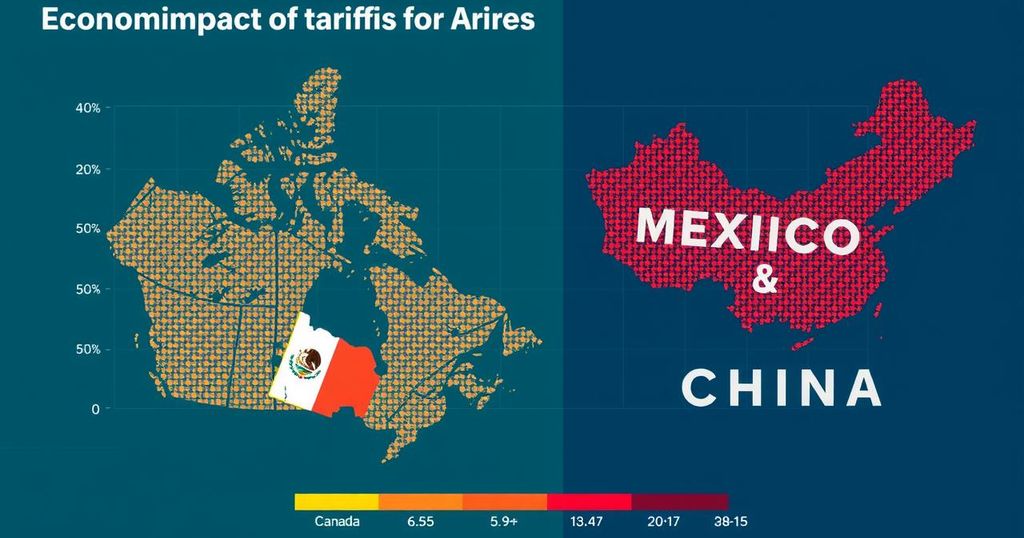Donald Trump has pledged to impose tariffs of 25% on imports from Canada and Mexico, and 10% on those from China, starting from his first day in office. This move is intended to combat illegal immigration and drug trafficking but is expected to lead to higher prices for American consumers. Economists caution about potential inflation and retaliation from the targeted countries, which account for a significant proportion of U.S. imports.
President-elect Donald Trump has announced plans to impose significant tariffs on imports from Canada and Mexico, with rates of 25% proposed, alongside a 10% tariff on goods from China. This initiative, which he pledged during his campaign, aims to address what he describes as a crisis involving illegal immigration and drug trafficking, particularly the influx of the synthetic opioid fentanyl. The imposition of these tariffs is expected to have wide-ranging repercussions, including higher prices for essential goods such as gasoline and groceries, as these nations collectively account for approximately $1.5 trillion in exports to the United States.
Economists warn that these tariffs could escalate inflation, as the affected countries may retaliate, impacting trade flows. Mexico and Canada are among the U.S.’s largest trading partners, and substantial portions of American food supplies, particularly fresh produce, and essential commodities like oil, are sourced from these nations. If enacted, Trump’s proposed tariffs would likely disrupt the USMCA, a trade agreement designed to foster regional commerce. Economic experts also highlight potential legal challenges to these tariffs due to their contradiction with established free trade agreements.
In a statement on his TruthSocial platform, Trump asserted, “This Tariff will remain in effect until such time as Drugs, in particular Fentanyl, and all Illegal Aliens stop this Invasion of our Country!” This declaration aligns with his enforcement policies, which include strong immigration measures and mass deportations soon after his inauguration.
The topic centers on the implications of proposed tariffs by President-elect Donald Trump on America’s principal trading partners: Canada, Mexico, and China. His administration’s approach targets national security concerns, particularly regarding immigration and drug trafficking. Trump’s motives reflect a broader campaign promise to renegotiate trade terms perceived as unfavorable and address issues he cites as detrimental to the domestic economy. Economists and lawmakers have expressed concerns regarding inflationary pressures and the potential for retaliatory actions by the affected countries, stressing the necessity for careful consideration of these policies and their broader economic implications.
In summary, Donald Trump’s anticipated tariffs on imports from Canada, Mexico, and China highlight a contentious shift in U.S. trade policy with significant implications for inflation and consumer goods prices. As America’s leading trading partners brace for potential disruption, the initiative may strain existing trade agreements and provoke legal challenges. Observers remain vigilant regarding the broader impacts of these tariffs on the economy, market stability, and international relations.
Original Source: www.usnews.com







